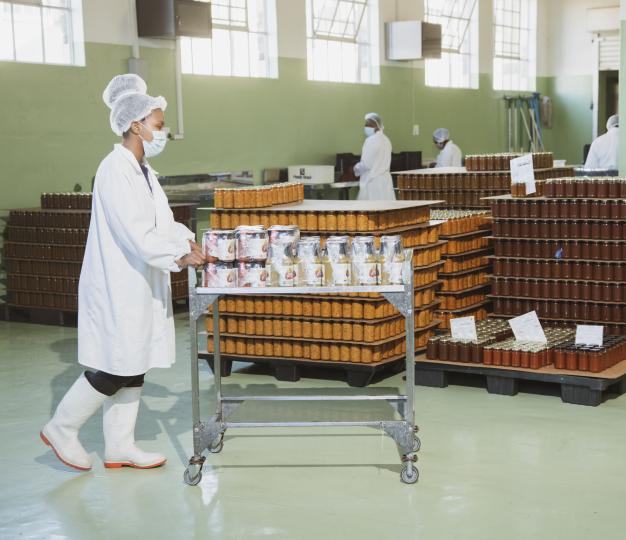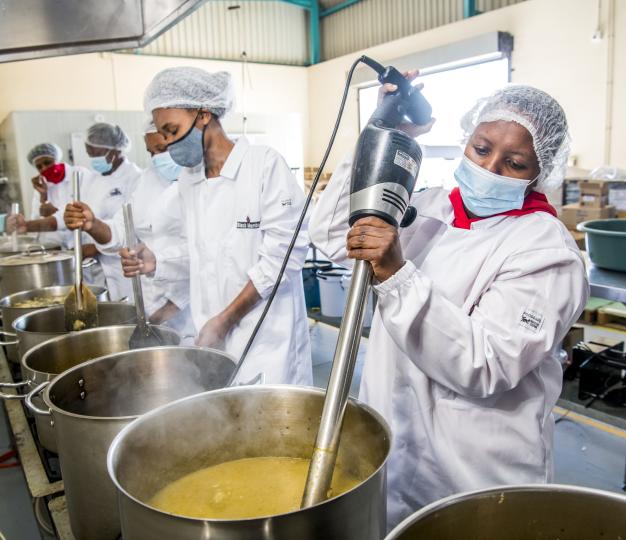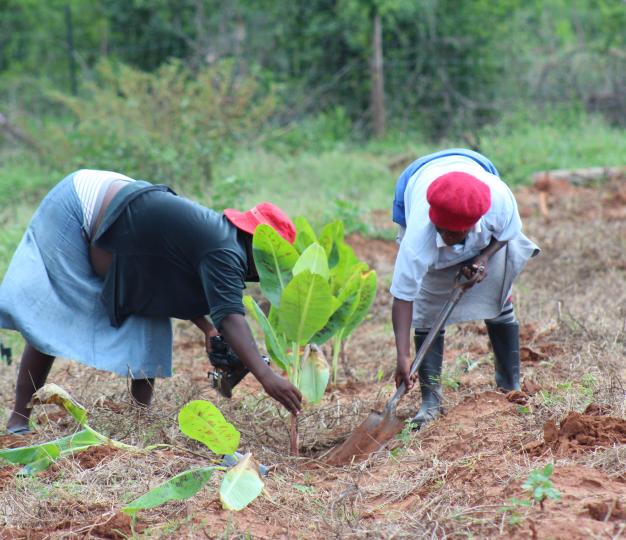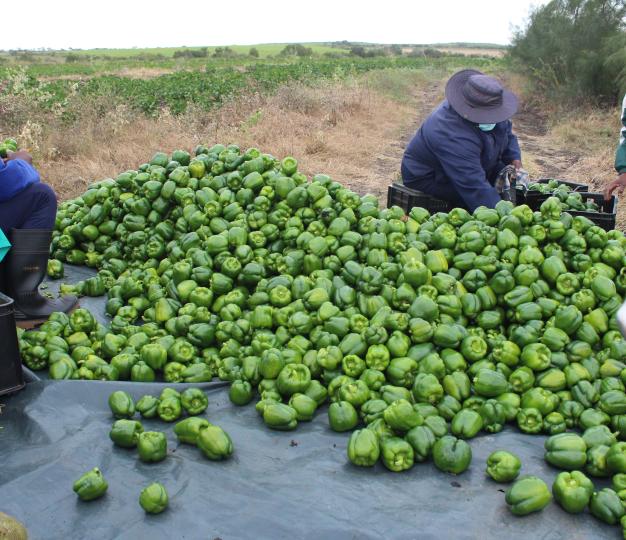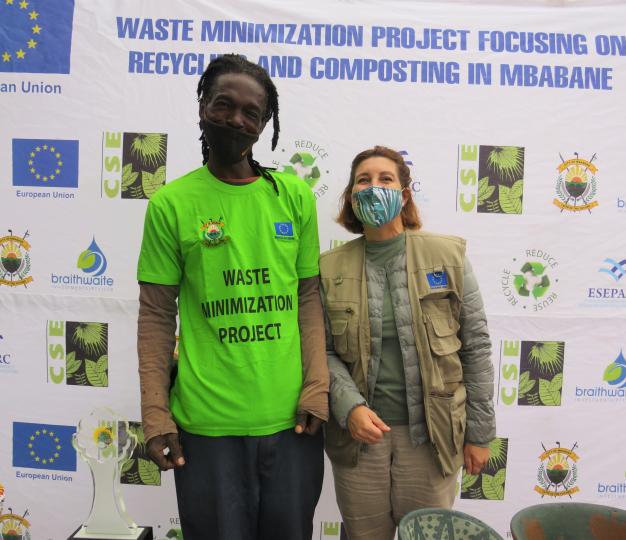PROJECTS
Projects in the Kingdom of Eswatini
The specific basis for the EU cooperation with the Kingdom of Eswatini for the period 2021-2027 is the National Development Plan (NDP) 2019/20 - 2021/22. This Plan, which is the main document that guides the allocation of national resources to achieve the key development agenda and priorities set by the Government, is an integral part of the broader strategic framework of the Kingdom of Eswatini. The 1997 promulgation of the Vision 2022 of the Kingdom of Eswatini gave impetus to the development of the strategic framework. The Vision 2022 is that “By the year 2022, the Kingdom of Eswatini will be in the top 10% of the medium human development group of countries founded on sustainable economic development, social justice and political stability”.
Sur cette page
- Support to job creation and the investment climate
- Programme in Support to the Implementation of the EU-SADC European Partnership Agreement (EPA)
- The High Value Crop and Horticulture Project
- Water Harvesting, Small and Medium Earth Dams Project (WHDP)
- Support to Agriculture value chains
- European Instrument for Democracy and Human Rights
- CSO – LA Civils Society Organisation and Local Authorities
Support to job creation and the investment climate
To support the economic recovery of Eswatini amidst the Covid-19 pandemic crisis, the European Union started the “Support to Job Creation and the Investment Climate” action. This EUR 5 million (SZL 100 million) programme will be aiming to support Micro, Small and Medium Enterprises (MSMEs) in the country as they face the economic challenges of the current crisis.
The low cash-flow, lack of access to finance, reduced diversity of products and markets are some of the reasons that make MSMEs more vulnerable to the impacts of this crisis. Through this programme, MSMEs get the needed support to diversify their markets and products, to add value to their products and to improve their management skills which will, in turn, help them to better face the challenges that are expected to result from this crisis. The main objective of this EU funded programme is to tackle the economic slowdown and to improve the livelihoods of smallholder farmers and workers in Eswatini by creating better jobs and growth.
Programme in Support to the Implementation of the EU-SADC European Partnership Agreement (EPA)
This EUR 6 million (SZL 120 million) EU programme focuses on supporting Micro, Small and Medium Enterprises (MSMEs), mostly on the ones that have the potential to export to regional and European markets. Working together with the buyers from the start, this programme transfers expertise to companies, which will prepare them to attract investors and sell worldwide.
This action furthermore aims to improve the Public-Private Dialogue through the support to the implementation of a State Business Relations Secretariat. This Secretariat will work as a competitiveness forum that can identify key national issues affecting the competitiveness of the business sector, particularly the MSME sector, thus impeding growth and job creation.
In complementarity with the Support to Job Creation and the Investment Climate, the project works to increase the competitiveness and sustainability of the Eswatini Micro, Small Medium Enterprises (MSMEs), Social Enterprises (SEs) and Producer Associations through the reinforcement of the support institutions, the establishment of public-private alliances, and the improvement of the access to finance and investments.
The High Value Crop and Horticulture Project
The main objective of the project EUR 16.60 million (SZL 318.69 million) is to increase the contribution of the agricultural sector to poverty reduction in Eswatini providing smallholder farmers with marketing opportunities and locally produced diversified food on the market. The approach taken promotes the involvement of Finance and Development Institutions for increased access to finance, land aggregation and development for smallholder farmers who are moving from subsistence farming into becoming legally registered companies producing at a commercial level.
One key component of the project is community mobilization, leading to the preparation of Chiefdom Development Plans (CDPs) which becomes the roadmap that the chiefdom follows in the allocation of available resources, and harnessing these for inclusive development led by the community. The CDPs are developed in selected communities spread across the 4 regions of the country (Hhohho, Lubombo, Manzini, and Shiselweni).
Water Harvesting, Small and Medium Earth Dams Project (WHDP)
The Water harvesting, small and medium earth dams project is a EUR 14.545 million (SZL 278.37 million) project that aims to achieve three results, namely:
- Increased Water Storage Capacity
- Enhanced Production Capacity for Smallholders
- Strengthened Institutional Capacity
As part of activities towards achieving the project pur-pose, WHDP contemplates the construction and rehabilitation of water storage structures and land development and irrigation schemes for the irrigation of more than 500 Ha and will directly benefit an estimated population of 6000 persons.
Support to Agriculture value chains via sustainable and inclusive energy investment
The Support to Agriculture value chains via sustainable and inclusive energy investments in Eswatini programme (EUR 7.45 million) expected outputs are the improvement of the business environment in the renewable energy sector and the increase of investments in renewable energy or energy efficiency projects in support of key agriculture value chains. With the energy issue becoming more relevant to the sector, and to the economy in general, this EU intervention is in synergy with the Government of Eswatini’s energy master plan. Among other activities of this programme, there is the setting up in Eswatini of a EUR 5 million ElectriFI country window.
EIDHR - European Instrument for Democracy and Human Rights Projects
The EIDHR Instrument is a thematic instrument involving civil society organisations. It is the EU’s main vector of support in the area of democracy and human rights. Its primary aim is to empower civil society organisations on the ground and support their actions to promote and defend democracy, human rights, gender equality and empowerment of women operators, local authorities.
In Eswatini, EIDHR projects contribute to making inroads and raising human rights awareness in the rural communities as well as contribute towards the advancement and compliance of human rights standards in the country. The projects particularly address gender issues as they aim to empower women and youth, especially in terms of reducing gender-based violence. The EIDHR instrument has furthermore contributed to enhancing access to justice in the country.
CSO – LA Civils Society Organisation and Local Authorities
The CSO –LA projects in Eswatini have been building the capacity of the civil society in terms of project management and they strengthened the cooperation among the different organisations. The projects are based on the recognition of the need for coordinated and joint action of concerned CSOs to demand necessary reforms.
CSO-LA projects in Eswatini tackle the key relevant issues related to the enforcement of the democratic governance in the country, and in particular of the freedom of expression and of assembly, bridging the existing gaps in communication among the stakeholders and reducing the differences among the interests at stake. This is believed to contribute concretely to set the basis for a more conducive environment, where human rights are protected, promoted and enjoyed, as well as gender equality and empowerment of women is fostered.

